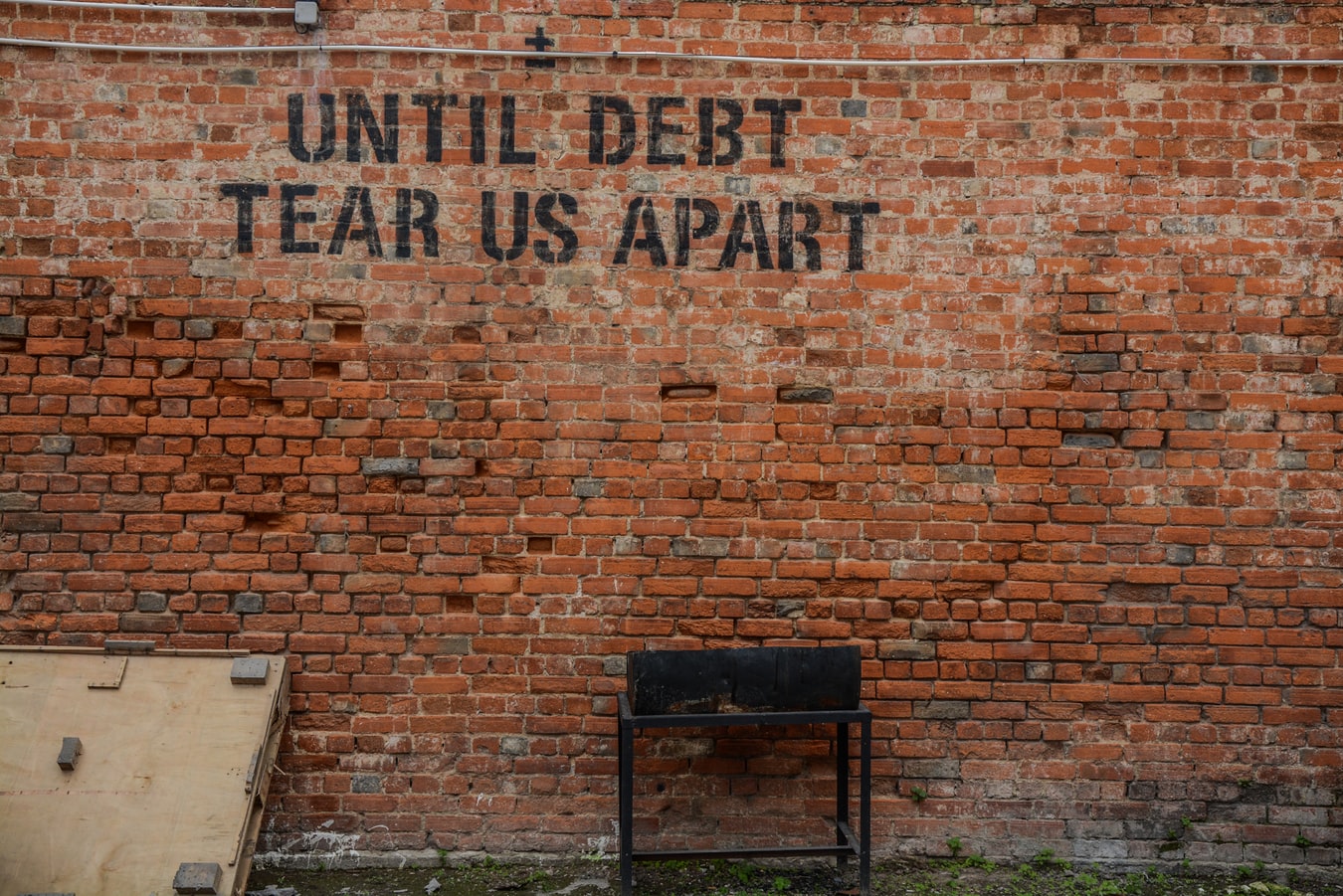Many people have taken out debt with Shop Direct Finance due to the popularity of their catalogues from associated retailers. If you are in this situation, know you are not the only one. For decades, this has been a common way to obtain items and pay in instalments.
Many adults today have nostalgic memories of catalogue brands from their childhood. Catalogues such as Argos and Littlewoods were often found on sofas and floors and were a common way to purchase clothes, school supplies, and birthday presents when finances were limited.
Purchasing items from a catalogue can result in high borrowing costs, particularly if you cannot afford the products you buy. Even if you make the minimum monthly payments, the interest or fees you accrue can accumulate quickly, leading to a situation where you are paying off mostly interest instead of the actual debt.
This article will provide you with information and guidance on how to manage your debt from Shop Direct Finance and how to move forward from relying on credit.
What's Included?
How can I deal with debt from Shop Direct Finance?
To handle your debt from Shop Direct Finance, you should first check if you owe the debt. Next, contact Shop Direct to ask about reducing fees and interest. Be aware of your rights regarding creditors and budget wisely to pay off the debt more quickly. Additionally, avoid taking on more credit, seek support from a debt charity, use tactics like the debt snowball, consider consolidating your debt, and explore insolvency options such as an Individual Voluntary Arrangement (IVA) or Debt Relief Order (DRO) if needed.
Who are Shop Direct Finance and what do they do?
Shop Direct Finance is a financial services division of Shop Direct. Shop Direct recently merged with another company to become The Very Group.
If you have previously had store credit or catalogue debt with Shop Direct, Littlewoods, Very, or ISME, then Shop Direct Finance will usually contact you regarding any outstanding payments. Although handling the calls and letters related to your debt can be challenging, there are various ways to manage the situation effectively. Let’s explore these options now.
How can Credit-Score help me?
Dealing with debt can be overwhelming, especially when debt collectors or bailiffs are involved. Don’t panic! The Credit-Score Team is here to help. We can help you to stop proceedings and reduce the cost of your debt for free.
We offer a unique debt solution service partnered with Equifax, a world leader providing consumer credit report data. This means we have instant access to all your major debt without you having to search through your paperwork. Furthermore, we’re supported by the Natwest Accelerator Programme for business and have a multiyear relationship with the organisation. Our extensive and unique personal finance knowledge goes far beyond debt solutions – so you can trust that you are in safe hands.
9 steps to deal with debt from Shop Direct Finance
1. See if you actually have to pay the debt
If you have a debt with Shop Direct Finance and it has been 6 years since you received a default notice, you may not have to pay it. This is because your debt might be considered ‘statute barred’ if you have not made any payments or acknowledged the debt in writing during that time. This means the debt is too old to be collected and cannot be enforced in court.
If you did not agree to a credit agreement with Shop Direct, now known as Very, it is possible that they may not be able to collect the debt from you legally.
2. Contact Shop Direct
If you have trouble keeping up with your catalogue repayments, such as because you lost your job, it might be worth contacting Shop Direct, now called Very, to ask for help with your debt situation. Very is regulated by the Financial Conduct Authority (FCA), and you must be notified if you deal with “persistent debt” related to your catalogues. They might provide you with a different payment plan to help you out.
The FCA defines ‘Persistent debt’ as a situation where the interest and late payment charges you pay are more than the money you pay towards your actual debt. Initially, Very might suggest paying more of your balance if you can. However, if you remain in persistent debt for 36 months, they must propose ways to help you clear your debt within three to four years. This may involve offering a more manageable payment plan or options to pause interest and charges or decrease your minimum monthly payment, but this could potentially harm your credit record.
You should seek free debt advice from a charity before your catalogue account remains in persistent debt for 36 months. However, if you do receive persistent debt warnings, it will help you understand when the credit you have taken out is becoming too expensive and provide you with some options for assistance.
3. Know your rights against Shop Direct Finance
Shop Direct Finance is under the regulation of the FCA. According to the rules, they, and any debt collection agencies they use to contact you regarding your debt, are prohibited from certain actions. In the UK, creditors and debt collectors are not permitted to:
- Continuously contacting you through phone, mail or in person can be considered harassment.
- Contact you via social media websites like Instagram, Facebook and Twitter.
- Engage in physical, psychological or verbal abuse.
- Force entry into your property
- Contact you outside of the hours 8am to 9pm.
- Call you at work unless you have explicitly allowed them to do so.
- Tell or inform your employer, family, friends or colleagues that you owe a debt or that they are a debt collector. Even hinting this is against FCA regulations.
- Falsely accuse you or claim they have certain powers, such as taking your belongings or having you arrested. It’s important to know that in the UK, debt collectors do not have these powers, and it is not illegal to be unable to pay off debts from catalogues.
- Charge additional interest or late fees not outlined in the original credit agreement or contract you signed with the Shop Direct catalogue.
- Imply that legal action can be taken against you when it cannot.
- Provide false documents or impersonate bailiffs or legal authorities.
- Use jargon or complicated language to confuse or deceive you
- Force you to sell your house to pay off your debts.
- Force you to take out more credit to pay off the debt
- Attempt to humiliate you in a public setting.
- Force entry to your home without permission.
You can find a complete list of your rights against creditors and debt collectors in the Financial Conduct Authority (FCA) handbook. If a debt collector violates these rules, you can file a complaint with the Financial Ombudsman Service (FOS).
4. Budget
To quickly pay off catalogue debt, follow these steps: carefully budget your finances and allocate any savings towards paying off your debt. Consider using the Three Accounts Budgeting System created by debt charity Christians Against Poverty. The system involves having three bank accounts: one for direct debits (such as rent, mortgage, car insurance, and debt repayments), one for weekly spending and one for savings.
To manage your finances, first consolidate a list of all your expenses, including any debts you have. When you receive your income, allocate the money to your respective accounts, ensuring that you have enough to cover essential expenses like food and fuel and pay off your debts.
Allocate the amount of money needed for monthly rent, bills, and direct debit payments into your direct debit account. Put your allotted weekly spending money, such as groceries and occasional indulgences, into a separate basic cash account without overdraft. Save whatever remains for emergencies or special events like birthdays.
Write off up to 81% of unaffordable debt.
Avoid
bankruptcy
Stop pestering calls from creditors
One affordable monthly payment
5. Debt snowball
Here’s a psychological debt tactic to help you pay off your debt faster and stay motivated. It’s called the debt snowball method, where you begin by paying off your smallest debt while paying the minimum payments on your other debts. This gives you a sense of accomplishment by completely paying off debt sooner than if you continued to chip away at your larger debts.
To pay off multiple debts, start by paying off the smallest one and move on to the next smallest until they are all paid off. But, if you have several obligations on catalogues with high interests, you may find the debt avalanche method more beneficial. This involves paying off the debt with the highest interest rate first, saving you more money in the long term.
6. Don’t take out more loans
To manage your debt, it’s important to refrain from borrowing more money. Look for government or charitable aid that can assist you with necessities if you’re struggling to afford them. If your income is below a specific threshold or jobless, you may qualify for benefits such as Working Tax Credit, Child Tax Credit or Universal Credit, which can increase your income and aid in debt repayment. Your regional Citizens Advice Bureau can provide further assistance, including:
- Discretionary Housing Payment (DHP) from your council to help you pay rent.
- Receiving early payment of your benefits.
- Welfare assistance from your council can be used to purchase furniture or household appliances. These vouchers can be beneficial in situations such as when your washing machine breaks down and taking out a loan is your only other option.
- A 0% interest loan from the government
- Help you explore grant options for various expenses by using the grant calculator provided by Turn2Us, a charity organisation. This tool can assist you in determining the grants that you may qualify for within your local region.
7. Consider debt consolidation
Consider debt consolidation if you have multiple high-interest debts on store cards and catalogues. Debt consolidation involves taking out a low-interest loan with a reasonable repayment term and using it to pay off all your catalogue debts in one go. This will leave you with a single, easily manageable, low-interest payment each month (the loan) instead of multiple high-interest payments. Debt consolidation is a good option only if you have a good enough credit score to get a low-interest loan. Check for any low or 0% interest periods on consolidation loans and ensure you can repay the loan before the 0% interest period ends. Failing to do so could result in high-interest rates to be paid off. The available debt consolidation options are:
0% interest credit cards. Consider using your credit card to pay off your high-interest catalogue debts to make your repayments more manageable. After that, concentrate on repaying the credit card as it offers lower interest rates and easier repayments.
- Low-interest bank loan. You could use the loan money to clear your overdue catalogue accounts first and then concentrate on paying back the loan.
When considering debt consolidation loans, make sure to carefully review the fine print as some credit cards or loans may have additional fees, especially if you’re transferring balances or money. It’s important to verify if the consolidation approach is financially beneficial and ensure that you can pay off the loan during the low-interest period.
8. Find an insolvency solution
If you are struggling with a lot of debt you cannot realistically pay back, you might want to consider an insolvency solution. The UK government provides different solutions to cancel some or all of your debt. However, your credit score will be impacted until they are discharged (ended). Solutions include:
Individual Voluntary Arrangement (IVA)
An IVA is a program that enables you to repay a portion of your overall debt while having the remaining amount cleared. The program lasts 5-6 years, at the end of which all of the debt will be written off regardless of how much is left. Once the program has ended, the IVA will be removed from your credit record. After paying for your essential living expenses, you’ll be responsible for making small monthly payments towards your debt, based on what you can afford. If you have a County Court Judgement (CCJ) for debt, an IVA can undo the effects of it. Our company, IVA Advice, provides free and expert advice on IVAs. Feel free to contact us if you believe an IVA is the best option for you.
Debt Relief Order (DRO)
If you have no valuable assets and can demonstrate that your disposable income is less than £50, you might be eligible for a Debt Relief Order (DRO). A DRO will offer you legal protection from your creditors – meaning they will not be permitted to contact you about the debt – and will annul your debt after approximately 12 months. A CCJ can be encompassed in a DRO.
Bankruptcy
Although bankruptcy can eliminate your debt, it can significantly impact your credit score and lifestyle. If you serve as a director of a limited company, you won’t be able to continue during your bankruptcy, which could affect your professional development. Occasionally, you may have to inform your employer about your bankruptcy, which is uncommon in certain professions. If you file for bankruptcy, your debt can be erased after about a year. However, you might need to sell some of your belongings to pay back the people you owe money to. It’s important to get free advice about debt before filing for bankruptcy, and you should only do it as a last option.
9. Get support from a debt charity
If you are struggling with debt, you can receive free expert support from charities such as StepChange, Christians Against Poverty, and National Debtline. These charities may even be able to provide you with free debt management plans and speak to your creditors on your behalf, relieving you of the stress of having to handle them on your own.
We hope our discussion on handling Shop Direct Finance debt has been helpful. Remember, the most effective approach is to reach out to a debt charity and take steps to manage your debt, whether that involves a debt management plan or another solution. By doing so, you can attain the debt-free life you deserve.
Frequently Asked Questions
How can I pay off my Shop Direct Finance debt?
You can pay off your Shop Direct Finance debt by making the minimum monthly payments, paying a lump sum, or setting up a debt management plan. Contact Shop Direct to discuss your repayment options. [1]
What are my options for dealing with Shop Direct Finance debt?
Options include continuing payments, debt management plans, debt consolidation loans, credit counselling, debt relief orders, or bankruptcy. Weigh the pros and cons of each option. [2]
Is there any way to write off Shop Direct Finance debt? Shop
Shop Direct debt cannot be written off, but you may be able to negotiate a reduced settlement. Debt write-off is usually only an option with unsecured loans and credit cards. [3]
Can I consolidate my Shop Direct Finance debt into another loan?
Yes, you can consolidate Shop Direct debt through a debt consolidation loan or 0% balance transfer credit card. This combines debts into one payment. [4]
What happens if I miss a payment on my Shop Direct Finance debt?
Missing payments could incur late fees, hurt your credit score, and lead to default/collections. Contact Shop Direct immediately to discuss options to avoid further issues. [5]
Will Shop Direct Finance take me to court for unpaid debt?
Shop Direct can take legal action for unmanaged debt, including county court judgments. Avoid court by working with them to repay or writing to dispute within 30 days. [6]
How long do Shop Direct Finance debts stay on credit files?
Shop Direct defaults remain for 6 years from the last payment date. Settled accounts remain for 3 years. Always pay on time to avoid credit damage. [7]
How much interest do Shop Direct Finance charge on late payments?
Their standard interest on late Shop Direct payments is 29.9% APR. Interest is charged daily from the date of your missed payment. [8]
What is the contact number for Shop Direct Finance customer services?
You can contact Shop Direct Finance customer services at 0800 085 4000. Call to discuss repayment options. [9]
Where can I get free debt advice about Shop Direct Finance?
Contact StepChange for free debt advice about managing Shop Direct debts. Other options are CAP, Citizens Advice and National Debtline. [10]
References:
- https://www.shopdirect.com/help/managing-your-account/making-payments/pay-your-balance-off-quickly
- https://www.moneyadviceservice.org.uk/en/tools/debt-advice-locator
- https://www.resolver.co.uk/companies/shop-direct.com
- https://www.moneysavingexpert.com/loans/debt-consolidation-loans/
- https://www.equifax.co.uk/resources/loans-and-credit/how-missed-payments-affect-your-credit-score.html
- https://www.citizensadvice.org.uk/debt-and-money/action-your-creditor-can-take/county-court-judgments-ccj/
- https://www.experian.co.uk/consumer/guides/removal-of-ccjs.html
- https://www.moneysavingexpert.com/loans/debt-help-plan/#solution3
- https://www.shopdirect.com/help/contact-us
- https://www.nationaldebtline.org/






